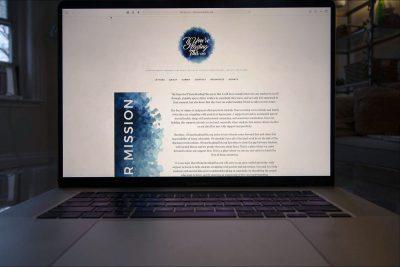Kendall Jenkins, a second-year Boston University School of Medicine student, created an online space for students to share their experiences with mental health by writing letters.

The new chapter is part of “If You’re Reading This” — a national organization that strengthens students’ support networks “by having friends and peers come forward first and share the responsibility of being vulnerable.”
Jenkins said she created the chapter because her classmates and faculty members felt there was an “incredible sense of isolation” throughout the 2020-2021 school year when classes were held over Zoom.
“Anyone who is newly between therapists or not really settled into a friend group yet can go onto the website, scroll through the stories and find somebody who had a story that really resonated with them, and therefore feel a little bit less alone,” Jenkins said.
IYRT is a free and accessible resource that connects people going through change or starting out in a new environment with one another, Jenkins said.
The organization started in 2016 by an undergraduate student at the University of Virginia, but now has chapters across the nation from Washington State University to Boston College.
Jenkins said students can submit letters on IYRT’s website — either anonymously or with their name — sharing a bit of their experience and what they’ve overcome.
“I often tell people when they’re starting to write letters, think of what advice you would give your friend,” Jenkins said. “We’re not trying to provide official mental health advice or anything like that, but … often the letters share a bit of wisdom or just normalize what the person is going through, so that other people can relate to it.”
Emma Kraus, the undergraduate coordinator and photographer for the club, said the club is a “more passive” and “comfortable” way for students to get involved in supporting themselves and others’ mental health.
“There’s just something about student-run clubs that make it a lot more approachable for people and make it easier for people to understand what you’re going through without having someone speak down to you, but speak to you,” Kraus, a junior in the College of Arts and Science, said. “It’s a great platform to share other ideas.”
Kraus said since BU Student Health Services is forced to “cast a wide net” to help thousands of students, they can’t provide routine check-ins for everyone and students often “slip through the cracks.” The club also reaches people who may not be comfortable attending group sessions or other resources BU SHS provides.
“The mental health training we have to do, [people] just kind of skip through it. It’s been there, you’ve heard that and it’s basic facts,” Kraus said. “With these letters, there’s so many details, interesting ideas, coping mechanisms and just thought processes that the authors get to share, that I think in letters and in words, come across very creatively, super interesting and much more engaging for an audience.”
Ana Ibarra, a sophomore at Boston College studying applied psychology and human development in the Lynch School of Education, wrote a letter for BC’s chapter of IYRT last year in December.
“I thought it would be a good way for even me to think about things that maybe I hadn’t gotten a chance to write about,” Ibarra said. “Writing is such a great way to explore thoughts that sometimes are really difficult to put into words.”
Ibarra said publishing her letter on IYRT made her feel part of a special community of people at BC who also read and write these letters.
Jenkins said she hopes this resource will be accessible to both undergraduate and graduate students, and will provide a diversity of topics that people can find relatable and helpful.
“Ideally, once we collect enough letters, I hope that someone can scroll through and find a friend or a colleague or someone that they interact with on a daily basis, and just see that it’s okay to be struggling with these things,” Jenkins said. “It’s not this one in one million thing.”
To learn more about IYRT follow @ifyourereadingthisbu on Instagram or reach out at [email protected].


























































































































